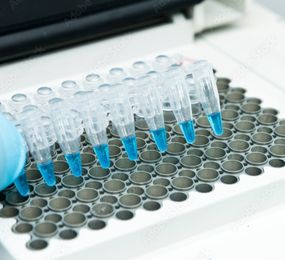The chemical industry, a cornerstone of modern society, has traditionally relied on petrochemical-based raw materials. However, the growing concern about environmental sustainability and the depletion of fossil fuel resources has spurred a shift towards bio-based chemicals. Biomanufacturing, leveraging biological processes, offers a promising avenue for producing these sustainable alternatives.
A Sustainable Alternative:
Bio-based chemicals are derived from renewable biological resources, such as plant matter, agricultural waste, and microorganisms. Unlike petrochemical-based chemicals, they offer several advantages:
- Reduced Carbon Footprint: Bio-based chemicals can help reduce greenhouse gas emissions compared to their fossil fuel counterparts.
- Renewable Resource Utilization: By utilizing renewable biomass, bio-based chemicals contribute to a more sustainable and circular economy.
- Biodegradability: Many bio-based chemicals are biodegradable, reducing environmental impact and promoting a more sustainable waste management system.
Biomanufacturing Processes:
The production of bio-based chemicals involves various biomanufacturing processes:
- Fermentation: Microorganisms are used to convert renewable feedstocks into valuable chemical compounds.
- Enzyme Catalysis: Enzymes can be used to catalyze chemical reactions, offering a greener and more efficient alternative to traditional chemical processes.
- Metabolic Engineering: Modifying the genetic makeup of microorganisms can optimize their ability to produce specific bio-based chemicals.
Applications of Bio-Based Chemicals:
Bio-based chemicals have a wide range of applications across various industries:
- Biofuels: Bio-based chemicals can be used as components in biofuels, reducing dependence on fossil fuels.
- Plastics: Biodegradable bioplastics made from renewable resources offer a sustainable alternative to traditional plastics.
- Pharmaceuticals: Bio-based chemicals can be used in the production of pharmaceuticals, providing sustainable alternatives to petrochemical-derived ingredients.
- Personal Care Products: Bio-based surfactants and emulsifiers can be used in a variety of personal care products, such as cosmetics and detergents.
Challenges and Opportunities:
While bio-based chemicals offer significant potential, challenges remain:
- Cost Competitiveness: Achieving cost parity with petrochemical-based chemicals can be a hurdle.
- Scalability: Scaling up the production of bio-based chemicals to meet market demand requires investment in infrastructure and technology.
- Regulatory Framework: Developing clear regulatory frameworks and standards for bio-based chemicals is essential to facilitate their commercialization.
Bio-based chemicals represent a promising solution for a more sustainable future. By leveraging biomanufacturing processes, we can transition away from fossil fuel-based chemicals and create a more environmentally friendly and resource-efficient economy. As research and development continue to advance, bio-based chemicals are poised to play a pivotal role in shaping a sustainable future.
To register or learn more about the Forum please check here: https://bit.ly/3WRMLFS.
For more information and group participation, contact us: [email protected]
















